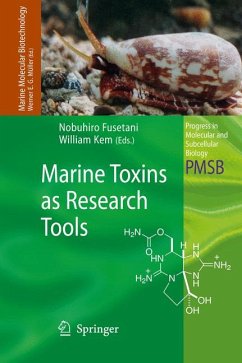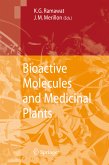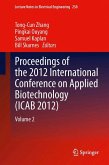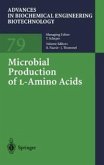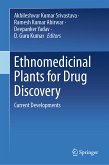Marine organisms produce a wide array of toxins, many of which are not only structurally unusual, but also show potent and interesting modes of action. Since the discovery of tetrodotoxin, a pufferfish toxin, as a potent and selective blocker of Na+ channels in 1964, it has been widely used as a research tool in pharmacological and physiological research. This has led to the identification of a number of important biological functions for Na+ channels. In recent years, much biological research has been carried out at molecular and cellular levels, and therefore selective inhibitors of enzymes and selective antagonist/agonists of receptors and channels have become increasingly important research tools. Accordingly, interest in using such compounds as reagents has increased. Marine toxins are some of the most popular research tools and have already contributed much to our understanding of biological processes and disease mechanisms.
Dieser Download kann aus rechtlichen Gründen nur mit Rechnungsadresse in A, B, BG, CY, CZ, D, DK, EW, E, FIN, F, GR, HR, H, IRL, I, LT, L, LR, M, NL, PL, P, R, S, SLO, SK ausgeliefert werden.

